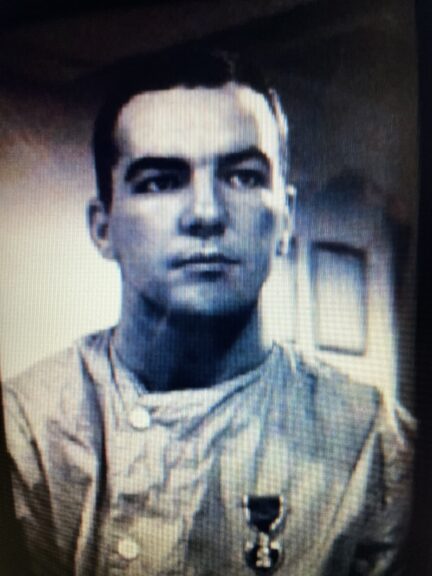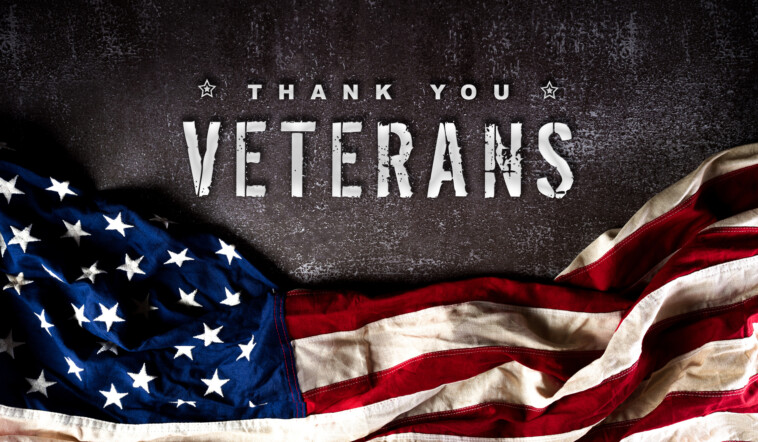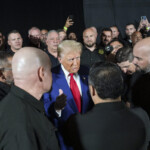For those who have either fought in war, or, as in my case, have had loved ones who have, Veterans Day is not just a date on the calendar. It is a reminder that survivors of the battlefield — the most taxing and traumatic of any environment — have given so much of themselves to defend the liberties we all too often take for granted.
During an election year, Veterans Day takes on special significance. When we step into the voting booth and draw the curtain, we are acting out the answer to a fundamental question so many of those returning home from duty must ask themselves: “What, exactly, did I fight for?” The answer is they fight so their fellow Americans are free to choose their leaders and to decide their own fate. It is cliché, but veterans have, indeed, fought for our most basic freedoms, and to exercise our God-given rights without fear of the midnight pounding on the door.
At times, as in my father’s case, our troops have fought not for our freedom per se, but those of others. Entire nations like South Korea, as well as post-war Western Europe, owe American veterans a debt that can never be fully repaid. Many of the men and women would return home maimed, or psychologically broken. Yet, the sublimity of their sacrifice remains. Unfortunately, so do the wounds, the memories, the terrors.
My Marine dad was a rare breed. Unlike many combat veterans, my father would talk about it. I gave him a sounding board, a release valve for the memories that I now understand were assaulting him for three decades since leaving the horrors of Korea behind. He was wounded by Chinese mortars and almost lost his foot. He would tell stories of how the Chinese attacked in human waves, blowing bugles and clanging gongs; how the enemy once splayed the body of a dead Marine across barbed wire between the lines, daring his men to come get their comrade. Marine tradition is to not leave the dead behind, if at all possible. They did retrieve the body. He would share how the North Koreans taught kids to throw grenades at them, and how they’d have to shoot them down; Or how he once identified a man in his platoon by his head, which the aid station attendees in a moment of macabre caprice had laid on the man’s chest.
No doubt what 2nd Lt. John M. Schaeffer, First Marine Division experienced in Korea were the same feelings, if under different circumstances and topographies, of every veteran on every battlefield. The blood, the shrieks, the pleas for water, the crying out for mothers, and the gore are universal no matter what side the combatants find themselves on. Indeed, Wellington famously said, “Believe me, nothing except a battle lost can be half so melancholy as a battle won.”

2nd Lt. John M. Schaeffer, First Marine Division, with Purple Heart. Credit: Brad Schaeffer
Post Traumatic Stress Disorder (PTSD), called “shell shock” in the First World War, and “battle fatigue” in the Second, is another consequence of the battlefield. As with any disorder of the mind, studies vary and exact figures are hard to come by as it manifests in so many different ways and to various degrees. One study by the National Library of Medicine places combat-related PTSD in U.S. combat veterans to range from about 2–17%; and a lifetime prevalence of about 6–31%. These are broad ranges. And the low estimates seem just that. Even if we split the difference in a non-scientific way, almost one-in-five veterans are currently suffering from some form of PTSD. When you consider that 16.2 million veterans will be the subject of this month’s annual day of remembrance, then we may have some 3 million-plus veterans in need of counseling or medication/treatment out there.
These are not just statistics. These numbers represent veterans, our champions on the field of conflict, who struggle every day just to live normal lives while not dwelling too much upon all they have seen. But sometimes the horrors of battle can never be unseen. I remember looking at my dad and thinking: Do the ghosts return when you lie in bed at night? Can you compartmentalize it? How do you handle it?
Turns out, he couldn’t. After thirty years, he could no longer drink or talk away the war. The memories were assaulting him like those mass waves of Chinese soldiers long ago. His defenses crumbled. He was not alone. In 1990-2010 the national suicide rate among American males was 19.4 per 100,000, and 4.9 per 100,000 for females. According to the Department of Veterans Affairs, however, in the same time period the ratios for veterans were double for men at 38.3 per 100,000 and almost triple for women at 12.8 per 100,000. Clearly, veterans are a high-risk group, and we must be vigilant and watch for suicidal ideations among those we love who wore the uniform.
Like many mental illnesses, PTSD is insidious. It comes from within. How do you fight an illness in which your thoughts are the illness? People who’ve never suffered the midnight of clinical depression, PTSD, or other mental illnesses, have difficulty grasping that you cannot reason your way back into the happy dawn. You can’t just “snap out of it.” You may tell yourself, “Nothing warrants these terrible thoughts.” You know it’s irrational and it doesn’t matter. That’s what depression is. It’s knowing you shouldn’t feel this way, but feel it anyway.
And that doesn’t even include a depression caused by something you saw or, worse, something you did. Under normal circumstances, far from the chaos and adrenaline of a battlefield, you would never encounter the raw emotion and bloodlust of war. You would be repulsed by your actions. How could I, for example, who was only 16 when my father eventually took his life, possibly relate to a man who fought Chinese troops armed with spades, picks, and even his bare hands as well as bullets and bayonets, in the middle of the night in minus twenty-degree weather under the eerie luminescence of star shells? How can anyone but other veterans truly relate to a combat experience?
It’s tragic, but if my veteran father were alive today, he would have more support, both within his own veterans community and the public at large. And certainly access to more effective medications, without any taboo. But we were just starting to recognize veterans’ emotional as well as physical anguish. Vietnam was barely decades in the past. And as for Korea? It was called “the Forgotten War” for a reason. Forgetting the war and getting on with their lives was what Korea’s veterans were supposed to do. But Dad couldn’t.
And that really is the point. This Veterans Day, let’s take time out of our busy day to pause and reflect and pray for all the soldiers, sailors, airmen, and Marines who have seen the worst of humanity up close and personal, to spare us the horrors of what they took upon themselves in our stead. As the saying goes, “Free people sleep peaceably in their beds because rough men stand ready to do violence on their behalf.” My father was just such a rough man. And, like so many vets today, he did unspeakable violence on our behalf. But that violence comes with a cost that we may not always appreciate or even see, let alone understand.
My thoughts this Veterans Day travel to our warriors returning home from their own combat zones, with their own demons picking away at their souls. How do they get through the black nights, with their spouses sleeping quietly next to them, their children dreaming in their beds, blissfully unaware of the struggle of the mind taking place in the darkness down the hall?
In July 1983, 30 years almost to the day after the last shot of the Korean War was fired, my father became another casualty of that war. Yet from his suffering, I have learned a vital lesson that I hope I can impart to any veteran reading this who may feel like he or she is losing the fight with PTSD: Don’t let the demons win. We’ll help you. Just please choose life.
To the families of veterans, you must be forceful in offering your help, your support, and love. Warriors are a stubborn and proud lot. And to all the veterans now engaged in their final tour of duty, this time in the combat zone of the spirit, I implore you. Choose life. Get help if you need it. It is there for you.
Remember you are not forgotten. We owe our freedom, like the freedoms we all exercised on November 5, to you. And, in return, you are unconditionally loved and appreciated by family, friends, and your nation. So always choose life. It is worth living.
* * *
If you are having thoughts of suicide, call or text 988 to reach the National Suicide Prevention Lifeline or go to SpeakingOfSuicide.com/resources for a list of additional resources.
* * *
Brad Schaeffer is a fund manager and author of three books. His articles have appeared on the pages of Daily Wire, The Wall Street Journal, New York Post, New York Daily News, National Review, The Hill, The Federalist, The Blaze, Breitbart, Zerohedge and other outlets. His best-selling novel, The Extraordinary, tackles the subject of living with a veteran father with PTSD as told by his autistic teen son.
The views expressed in this piece are those of the author and do not necessarily represent those of The Daily Wire.



